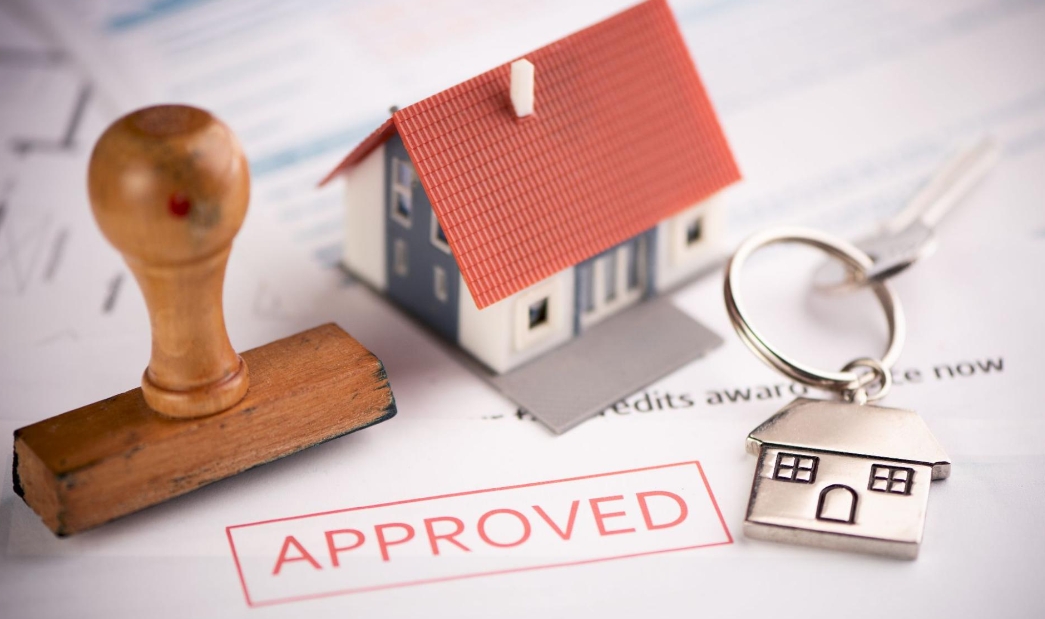Unlocking Homeownership: A Comprehensive Guide to Zero Down Mortgage Options
May 08, 2024 By Susan Kelly
What Is a Zero-Down Mortgage?
 A zero-down mortgage, also known as 100% financing, is a type of home loan that enables borrowers to purchase a property without making a down payment. At its core, the zero-down mortgage embodies accessibility, offering a lifeline to individuals and families who may find the traditional down payment requirements prohibitive. For those lacking substantial savings or facing financial constraints, this avenue presents an opportunity to swiftly transition from renting to owning, bypassing the lengthy process of accumulating funds for a down payment. By eliminating this initial financial barrier, zero-down mortgages democratize homeownership, empowering a broader spectrum of society to partake in the wealth-building benefits and stability associated with owning a home.
A zero-down mortgage, also known as 100% financing, is a type of home loan that enables borrowers to purchase a property without making a down payment. At its core, the zero-down mortgage embodies accessibility, offering a lifeline to individuals and families who may find the traditional down payment requirements prohibitive. For those lacking substantial savings or facing financial constraints, this avenue presents an opportunity to swiftly transition from renting to owning, bypassing the lengthy process of accumulating funds for a down payment. By eliminating this initial financial barrier, zero-down mortgages democratize homeownership, empowering a broader spectrum of society to partake in the wealth-building benefits and stability associated with owning a home.
Advantages and Disadvantages of Zero Down Mortgage Loans
At the forefront of the allure of zero-down mortgage loans lies their unparalleled accessibility. By eliminating the need for a down payment, these loans broaden the scope of homeownership to include individuals who may have previously been sidelined by financial constraints. For many prospective homebuyers, saving for a down payment can be a daunting and protracted endeavor, delaying their dreams of homeownership indefinitely. Zero-down mortgages offer a lifeline, enabling these individuals to step onto the property ladder without the burden of a hefty upfront payment.
Moreover, zero-down mortgage loans facilitate expedited entry into the housing market, allowing borrowers to capitalize on favorable market conditions and secure their desired property without delay. This immediacy of access not only fosters a sense of empowerment and achievement but also positions homeowners to benefit from potential appreciation in property values over time.
Additionally, zero-down mortgage loans afford borrowers the flexibility to allocate their savings towards other financial priorities, such as emergency funds, investments, or home improvements. By circumventing the need for a down payment, borrowers can preserve their liquidity and maintain financial flexibility, mitigating the strain of upfront expenses and enhancing their overall financial resilience.
Despite their undeniable appeal, zero-down mortgage loans are not without their drawbacks and complexities. Foremost among these is the potential for higher interest rates and additional costs associated with these loans. Lenders often mitigate the risk of providing 100% financing by imposing higher interest rates, resulting in increased long-term borrowing costs for borrowers. Furthermore, borrowers may be required to pay for private mortgage insurance (PMI) to protect the lender in the event of default, further inflating monthly payments and total loan expenses.
Moreover, the absence of a down payment exposes borrowers to the risk of negative equity, particularly in volatile housing markets where property values may fluctuate unpredictably. In such scenarios, borrowers may find themselves owing more on their mortgage than the value of their home, undermining their financial stability and limiting their options for future refinancing or sale.
Additionally, zero-down mortgage loans typically entail stringent eligibility criteria, including requirements related to creditworthiness, income stability, and debt-to-income ratio. This exclusivity may preclude certain individuals from accessing these loans, limiting their ability to benefit from the advantages of 100% financing.
How to Get a Zero Down Mortgage
 Navigating the landscape of zero-down mortgages requires a strategic approach, beginning with a thorough understanding of eligibility criteria. Prospective borrowers must ensure their creditworthiness, stable income, and favorable debt-to-income ratio meet lenders' stringent requirements. Armed with this knowledge, borrowers can embark on the application process, meticulously researching and comparing lenders while seeking pre-approval to enhance their credibility. Alongside traditional mortgage options, exploring government-backed programs and down payment assistance initiatives can expand the realm of possibilities. However, borrowers must remain vigilant of potential challenges, including higher interest rates, additional costs like private mortgage insurance, and the risk of negative equity. By carefully navigating these complexities with determination and diligence, aspiring homeowners can unlock the door to homeownership without a down payment, realizing their dreams with confidence and clarity.
Navigating the landscape of zero-down mortgages requires a strategic approach, beginning with a thorough understanding of eligibility criteria. Prospective borrowers must ensure their creditworthiness, stable income, and favorable debt-to-income ratio meet lenders' stringent requirements. Armed with this knowledge, borrowers can embark on the application process, meticulously researching and comparing lenders while seeking pre-approval to enhance their credibility. Alongside traditional mortgage options, exploring government-backed programs and down payment assistance initiatives can expand the realm of possibilities. However, borrowers must remain vigilant of potential challenges, including higher interest rates, additional costs like private mortgage insurance, and the risk of negative equity. By carefully navigating these complexities with determination and diligence, aspiring homeowners can unlock the door to homeownership without a down payment, realizing their dreams with confidence and clarity.
Zero Down Mortgage Options
Zero down mortgage options offer a promising pathway to homeownership for individuals who may not have substantial savings for a down payment. These options vary depending on the lender and program but generally require certain eligibility criteria to be met. Firstly, a good credit score is often necessary to demonstrate responsible financial management and reduce the lender's risk. Additionally, a stable income is crucial to ensure borrowers can afford their mortgage payments over time. A manageable debt-to-income ratio is also typically required to ensure borrowers aren't overextended financially.
Prospective homebuyers have several avenues to explore when seeking a zero down mortgage. Conventional lenders may offer their own zero down mortgage programs, tailored to meet the needs of qualified borrowers. Government-backed programs, such as FHA loans or VA loans, are another option. These programs often have more flexible eligibility requirements and may offer competitive terms for borrowers who meet the criteria. Additionally, down payment assistance initiatives provided by various organizations or local government agencies can help bridge the gap for those who need additional financial support.
Conclusion
In conclusion, zero down mortgage options provide a valuable opportunity for prospective homebuyers to enter the housing market without the burden of a down payment. While these options can offer accessibility and immediate homeownership, it's crucial for borrowers to thoroughly research and understand the terms and conditions associated with each option. Factors such as interest rates, additional costs, and long-term financial implications must be carefully considered before committing to a zero down mortgage. By weighing the pros and cons and ensuring eligibility requirements are met, borrowers can make informed decisions that align with their financial goals and aspirations.







